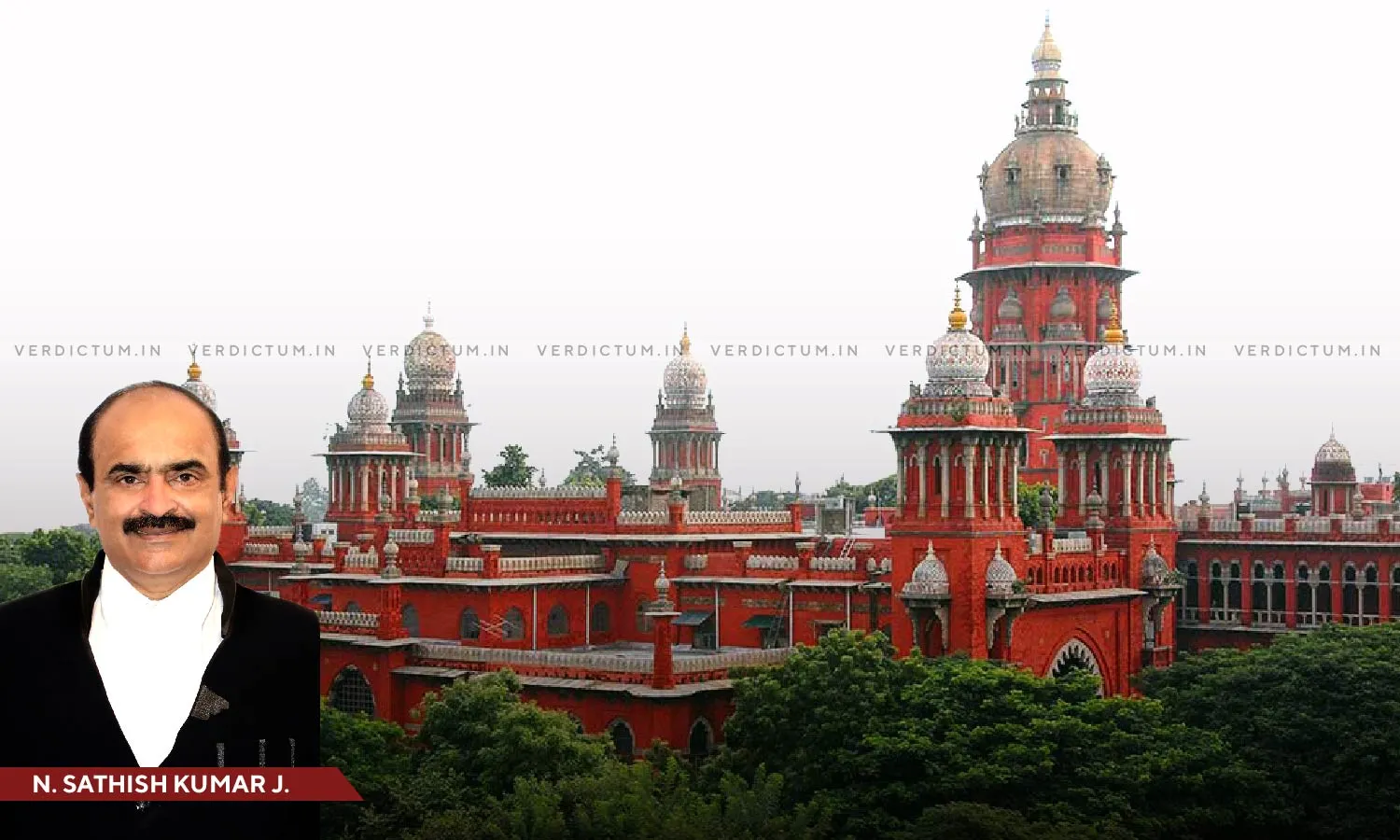Maternity Leaves Cannot Be Claimed As Matter Of Right For Third Child Once Restricted By State For Only Two Surviving Children: Madras HC

Justice N. Sathish Kumar, Madras High Court
While dismissing a petition whereby maternity leaves had been sought for the third biological child, the Madras High Court sustained the order passed by the District Educational Officer that such leaves are restricted under the state policy as well as the fundamental rules listed under Section 101 of the Fundamental rules.
Referring to a decision in case of Government of Tamil Nadu vs. K. Umadevi [W.A.No.1442 of 2022 dated 14.09.2022], the High Court reiterated that when the State has taken a policy decision that the Fundamental Rules is applicable to the Government servants, the Petitioner cannot claim any benefit under the Benefit Act, which is not applicable to the Government servants, except to the employees employed in the “Establishment” as defined under the Maternity Benefit Act, 1961.
A Single Judge Bench of Justice N. Sathish Kumar observed that “the facts of the present case are that the Petitioner is having four biological children. When the state policy and fundamental rules restrict the maternity leave for 3rd child, this Court is of the view, as the matter of right the Petitioner cannot seek maternity leave based on the Maternity Benefit Act”.
Advocate N. Manokaran represented the Petitioner, whereas Advocate V. Arun represented the Respondent.
The brief facts of the case were that the petitioner had two daughters from her first marriage. After the demise of her husband due to ill health, she was appointed as a Lab Assistant in 2017, and later she got re-married in 2021. Out of the second wedlock, the petitioner before giving birth to twin female children, applied for maternity leave for eleven months, which was denied stating that women employees are eligible to avail maternity leave only for two surviving children. Hence the petitioner approached the High Court contending her eligibility to maternity leaves as the Maternity Benefit Act, 1961 was enacted in pursuance of the constitutional guarantee enshrined in Article 42 of the Constitution, which does not impose any such restriction for availing the maternity benefit.
After considering the submission, the Bench found that there is no dispute that the Petitioner already had two children from her first husband, and that she had delivered twins from her second marriage.
The Bench observed from a plain reading of section 101 of the Fundamental rules that “such leave can be granted to a married women Government servants with less than two surviving children, not exceeding 365 days, which may spread over from the pre-confinement rest to post confinement recuperation at the option of the Government Servant.”
“The Fundamental Rules make it very clear that such a benefit is available to married women only up to two surviving children and the norm two surviving children made as mandatory to avail such benefit under the said Rule”, added the Bench.
The Bench then highlighted that “Establishment” within the meaning of Section 3 (e) in reference to Section 2 of the Maternity Benefit Act 1961, makes it very clear that the petitioner being a Government servant who has not been employed in any of the Establishment as defined under the Maternity Benefit Act 1961, she cannot claim any benefit as per the Maternity Benefit Act.
The Bench therefore concluded that when the state policy and fundamental rules restrict the maternity leave for third child, the Petitioner cannot seek maternity leave as a matter of right.
Cause Title: P. Yasotha v. The Government of Tamil Nadu and Ors. [Neutral Citation: 2023: MHC: 3871]
Click here to read/download the Order

